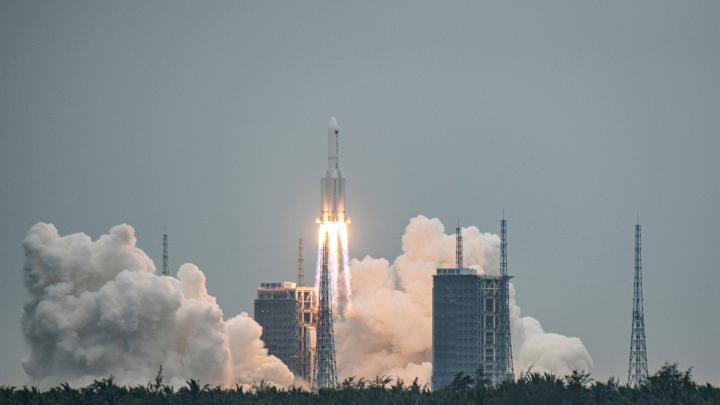According to official Chinese media, the remnants of the largest Chinese missile fell in the Indian Ocean on Sunday, destroying most of its components after entering the Earth’s atmosphere again.
Part of Long March 5B (Long March) re-entered the atmosphere at 10:24 Beijing Time (02:24 GMT) and entered the Indian Ocean, west of the archipelago of the Maldives. The China Aerospace Engineering Bureau reports that most of the debris has been burned into the atmosphere.
Last year, parts of the first Long March 5B flight hit the Ivory Coast, damaging several buildings without causing injuries.
According to experts, the probability of hitting a populated area on the ground was low. However, the uncertainty about the missile’s orbital decay and China’s failure so far to control its missile return flights have caused concern.
During the missile’s flight, Harvard astrophysicist Jonathan McDowell told Reuters that the potential area of the missile might be in northern New York, Madrid or Beijing, as well as southern Chile and Wellington, New Zealand.
Since large parts of the NASA SkyLab space station fell from orbit in July 1979 and landed in Australia, most countries have been trying to avoid such out of control events.
On Friday, the Chinese Foreign Ministry announced that most of the fragment orbiting the missile will burn when it enters Earth’s atmosphere again, and that the debris is unlikely to cause any harm to the Earth.
The body weighing between 17 and 22 tons and about 30 meters was the main component of the Long March 5B missile, which was launched from the Chinese spacecraft on April 29 to launch one of the main units of the future Chinese space station Tiangong.
Usually, the first part of a space rocket launches shortly after takeoff and falls to the ground immediately. In the case of Long March 5B, this part was separated from the rest of the spacecraft after its launch into Earth orbit, so that the missile component continued to orbit the Earth for several days, losing its speed and now it will return to it. Uncontrollable – explains the Aerospace company on its website. (PAP)
wr /
Arch.







